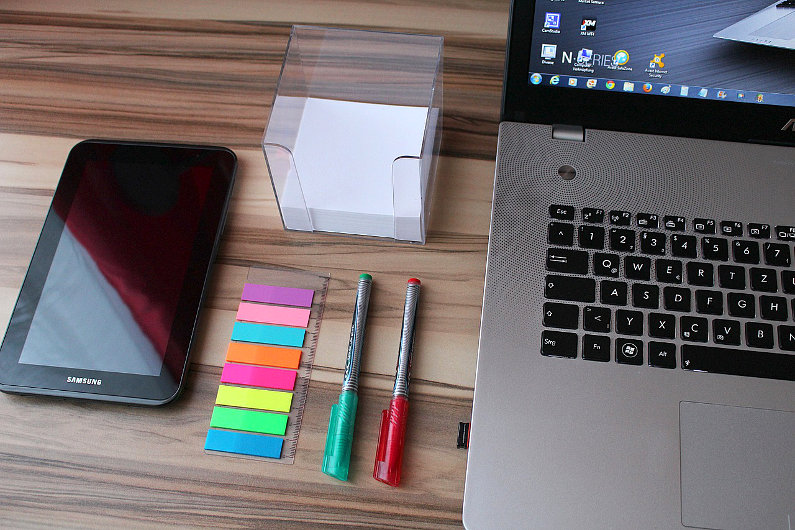For many people, the number one killer of productivity is procrastination. Putting off projects until the 11th hour is not only bad from a productivity standpoint, but it can also impact the overall quality of your work and set the tone for future work. Here are a few ideas that can help you kick your procrastination habit to the curb.

#1: Reevaluate Your Goals
Consider what you’re setting out to achieve and the methods you’re using to achieve those goals. If the project isn’t going the way you envisioned it, then it may be time to take a step back and reconsider how you’re achieving your goals and perhaps even the goal itself.
#2: Change Your Surroundings
Working in the same old environment can lead to procrastinating behavior, so you may want to change things up and see how it affects you. If you’re able to get away from the office, firing up the laptop at a nearby café or in the park may help you change your perspective and sharpen your focus. If you’re bound to your work desk, rearranging your desk space can do wonders. You can also add inspirational messages and even a few personal keepsakes to keep your spirits up and hone your focus.
#3: Make a Timeline and Set Specific Deadlines
A single deadline for all of your work can easily lull you into a complacent state. So you end up pushing the work back farther and farther until you have mere hours or even minutes until you hit the deadline. Fortunately, you can push back against this behavior and get on top of time management by laying out a detailed timeline for your project, with each major aspect of the project broken up into specific milestones. This way, you can assign specific deadlines for each milestone. Individual deadlines can create a sense of urgency that leads you to reach those milestones by the specified date.
If you’re worried about how to better organise your time, taking an online time management test may help you pinpoint some of the causes of your procrastination so you can manage your work time a bit better.
#4: Break Up the Task in Smaller Steps
Instead of tackling a huge task head-on, try breaking it down into smaller and more manageable chunks. If you have a page to write, for example, try writing it one paragraph or even one sentence at a time. Smaller goals won’t leave you so overwhelmed, plus the satisfaction of completing each goal can give you a well-needed confidence boost.
#5: Understand What Motivates You
There are times when you’re energized and absolutely pumped to tackle a project and there are times when you feel like you’re out of gas. Understanding where your motivation for the work comes from can help you tap into that motivational trigger whenever you need the boost. Knowing the things that inspire you can help you break out of your procrastination and become more productive.

#6: Get Rid of the Distractions
It’s easy for procrastinators to drift off and do other things, whether it’s checking your Facebook account, watching a funny video on YouTube or even just checking your email inbox for the umpteenth time. Cutting out these outlets can help you focus and get back on task. For instance, disabling the auto-notification on your email client and hiding those time-consuming web bookmarks from your browser can help you keep your focus.
#7: Keep it Simple
Simplicity is the key when it comes to getting work done before a deadline. Adding more complex ideas to your work can end up slowing you down, making it more likely that you’ll procrastinate instead of finishing the work at hand.
#8: Forget About Perfection
The drive towards perfection can be a good thing in many respects, but it can also become crippling when it comes to making deadlines, especially for procrastinators. Making your work “perfect” can easily become an all-encompassing and time-consuming effort. The important thing is to give yourself permission to not be “perfect” and to just focus on getting the job done.
#9: Remember the 80/20 Rule
According to the 80/20 rule, 80 percent of your work is created by 20 percent of your efforts. The remaining 20 percent is often achieved by 80 percent of your efforts. In short, this acknowledges that the vast majority of your time will be spent perfecting the details, whereas the bulk of your work is achieved with considerably less effort.
#10: Don’t Make Excuses
Making excuses for procrastinating behavior and the missed deadlines that often result only fuels procrastination. Holding yourself accountable for your targets (or having someone else hold you accountable) is a good way of breaking this cycle.
Procrastination is something that we all struggle with on a day-to-day basis, but there’s no excuse for you to let it get the better of you and cause your work to deteriorate as a result. By following these 10 tips, your motivation levels and productivity will soon increase to a much higher and sufficient standard.



